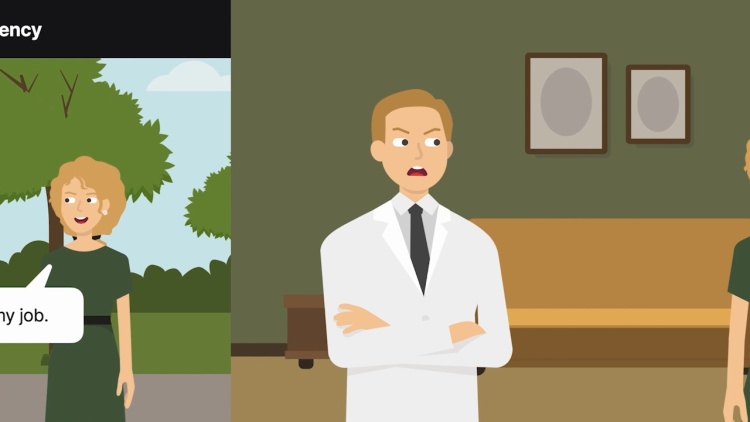Haugan v. Haugan
Wisconsin Supreme Court
343 N.W.2d 796 (1984)
- Written by Brittany Frankel, JD
Facts
Patricia Haugan (plaintiff) and Gordon Haugan (defendant) were married for almost seven years. During the marriage, Patricia worked as a teacher so that Gordon could pursue a medical degree. Patricia had dreams of becoming a homemaker, wife, and mother, but she placed those dreams on hold for Gordon. In 1980, Gordon was wrapping up his medical residency. Patricia resigned from her teaching job so that she could join Gordon in Wisconsin, which is where Gordon planned to practice medicine. Immediately before Gordon completed his residency, he and Patricia separated. After the separation, Gordon began working as a pediatrician and making an annual salary of $48,000 plus bonuses. Gordon voluntarily paid Patricia $10,150 for one year following their separation, because she was unemployed. Patricia then began a job at IBM making $19,680 per year, which was significantly less than what she had made as a teacher. Following the trial, the circuit court valued the couple’s assets and liabilities; divided the marital property and debts; and denied Patricia’s request for maintenance payments, because Patricia would not be in need following the divorce. Patricia appealed, and the court of appeals affirmed the judgment of the circuit court. Patricia appealed again.
Rule of Law
Issue
Holding and Reasoning (Abrahamson, J.)
What to do next…
Here's why 907,000 law students have relied on our case briefs:
- Written by law professors and practitioners, not other law students. 47,100 briefs, keyed to 996 casebooks. Top-notch customer support.
- The right amount of information, includes the facts, issues, rule of law, holding and reasoning, and any concurrences and dissents.
- Access in your classes, works on your mobile and tablet. Massive library of related video lessons and high quality multiple-choice questions.
- Easy to use, uniform format for every case brief. Written in plain English, not in legalese. Our briefs summarize and simplify; they don’t just repeat the court’s language.





